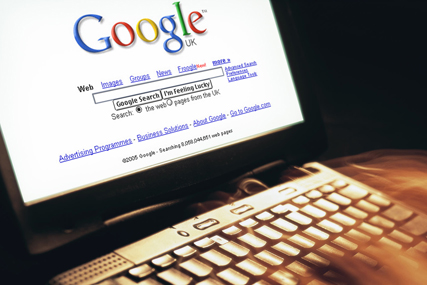
In a ruling today (23 March), the ECJ said Google's AdWords advertising system does not violate trademark rights by allowing advertisers to bid for keywords corresponding to their competitors' brands.
However, the ruling also said advertisers could not arrange for Google to display AdWords ads that do not easily allow the internet user to establish their origin.
In such cases, the trademark owner may invoke its trademark rights against the advertiser.
It is a reversal for luxury brand owner Moet Hennessy Louis Vuitton, which is among three businesses that have sued Google, claiming trademark infringement when competitors were allowed to buy AdWords for its brands.
Last year, , that found against Google for allowing traders to use the Louis Vuitton name to advertise counterfeit goods, alongside companies selling genuine branded goods.
At the time, Google was ordered to pay Louis Vuitton €300,000 (£278,000) in damages. Google argued it did not infringe trademark rules and said it had been sued by a number of a different claimants for trademark infringement, including Louis Vuitton and travel agency Viaticum, dating back to 2003.
Today, Dr Harjinder Obhi, senior litigation counsel for Google EMEA, said: "Our guiding principle has always been that advertising should benefit users, and our aim is to ensure that ads are relevant and useful.
"We will study the decision as we move forward in order to make sure that we continue to deliver advertising that is perceived as both valuable and relevant by our users."
Search engine agency Jellyfish's managing director Rob Pierre called it "a great result for Google" and added: "Ultimately, Google needs to deliver the best possible search results for the user, and a blanket ban on trademark bidding would not have been in the user's best interests."
However, Fiona McBride, trademark attorney at solicitors Withers & Rogers LLP, said today's ruling was "a setback for brand owners" and claimed it "seriously limits the scope of their trademark rights when it comes to challenging use of their trade marks in online advertising".
McBride added: "Only rarely will the internet user be unable to ascertain the origin of the goods and services, and it will therefore be easy for advertisers to circumvent the law and use third-party trademarks as keywords. This means that advertisers can secure a commercial advantage by piggy-backing on the reputation of the trademarks."
She called the ECJ decision "somewhat perplexing" because it specifically asks whether use of a competitor’s trademark in the text of the sponsored ad constitutes infringement. "Trademark law is playing catch up in this area," she said.

